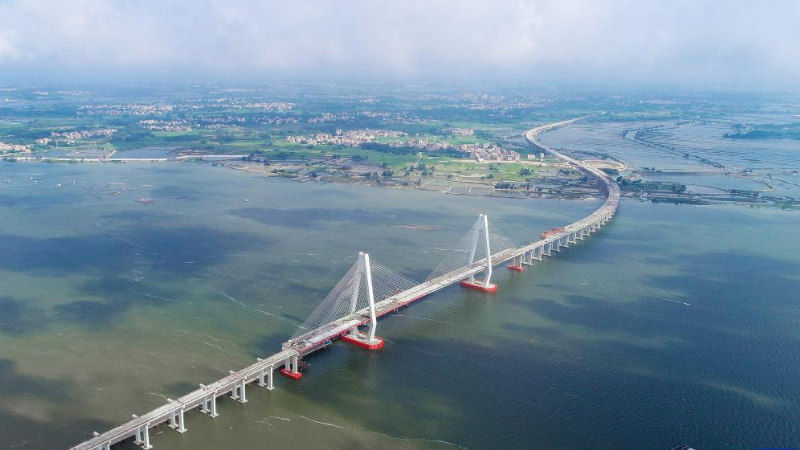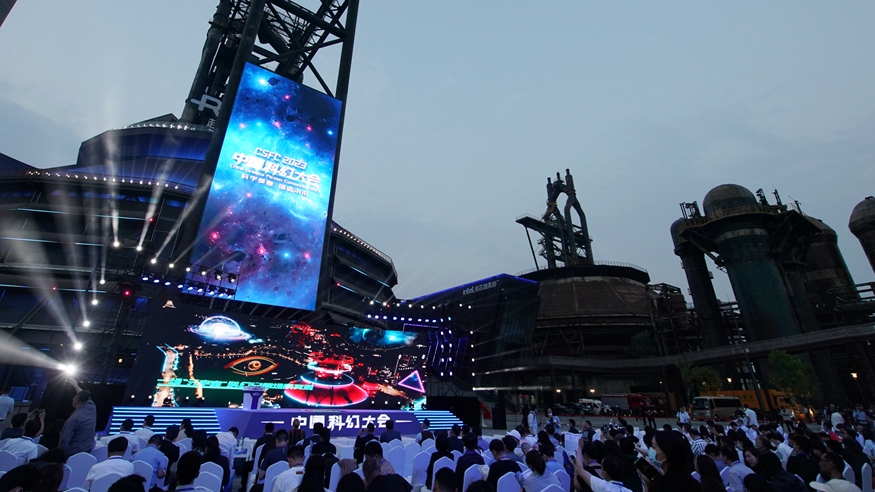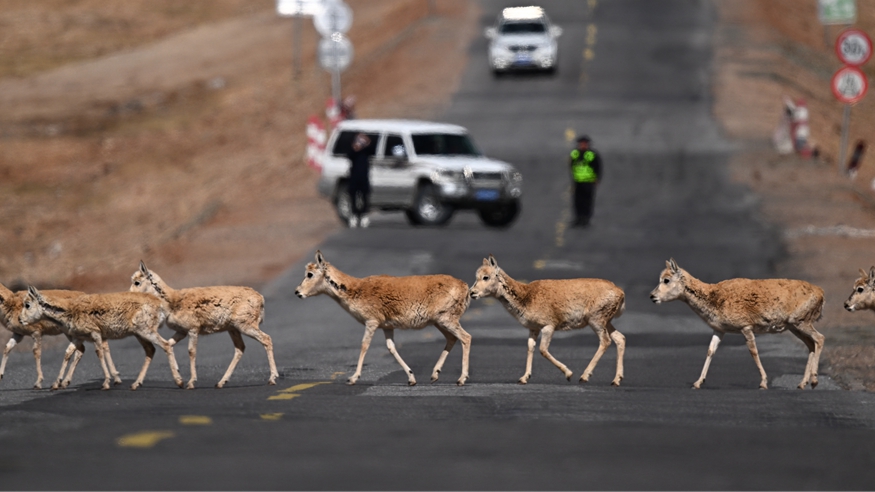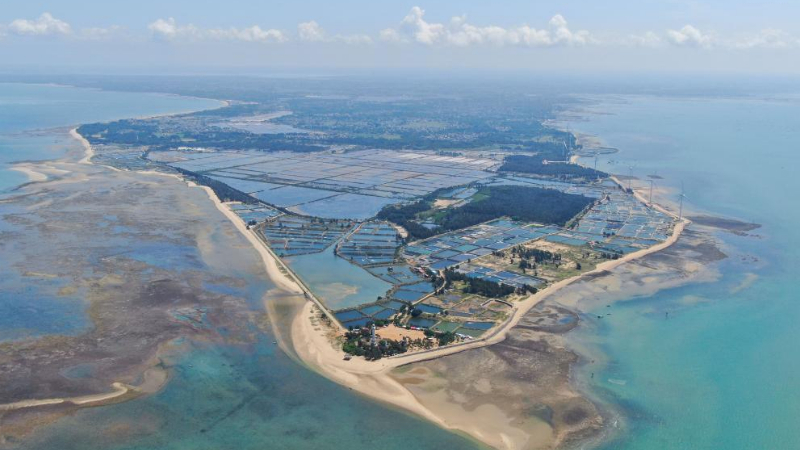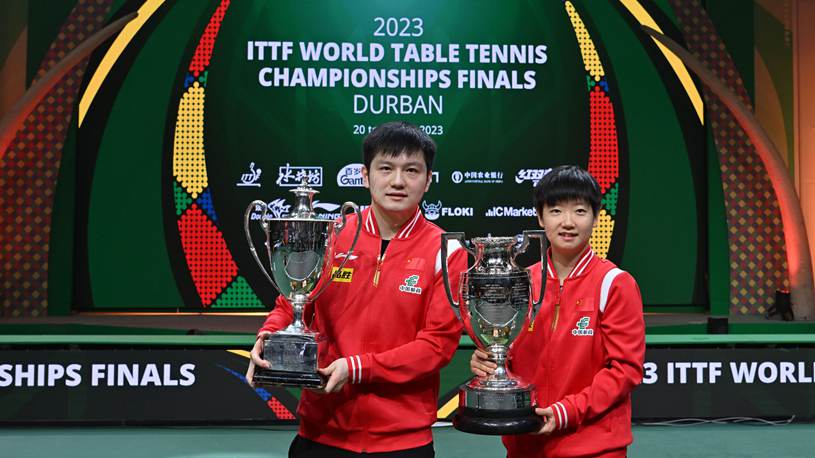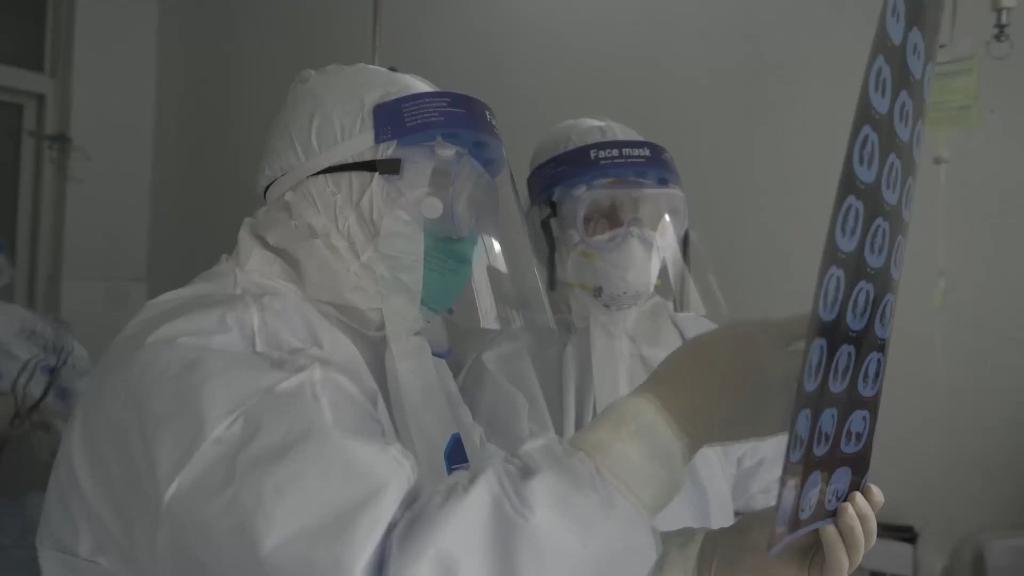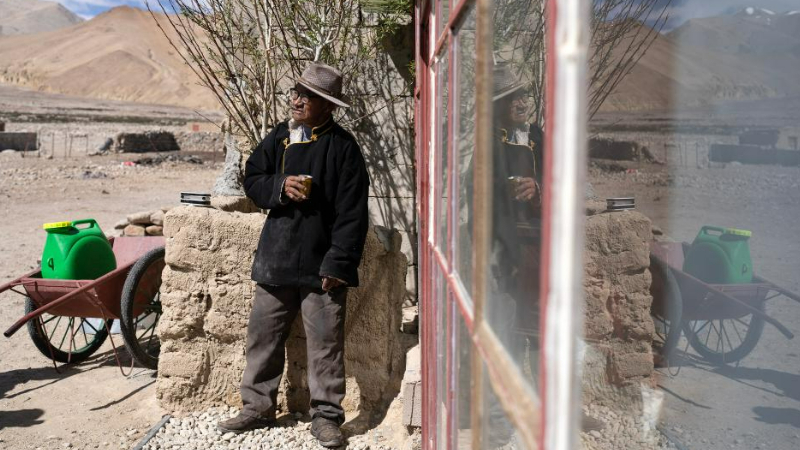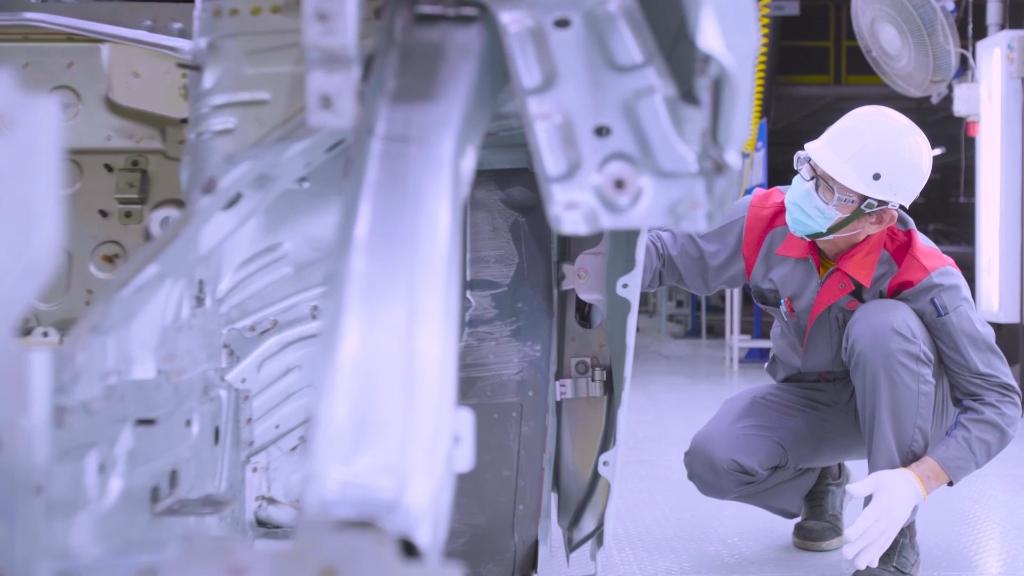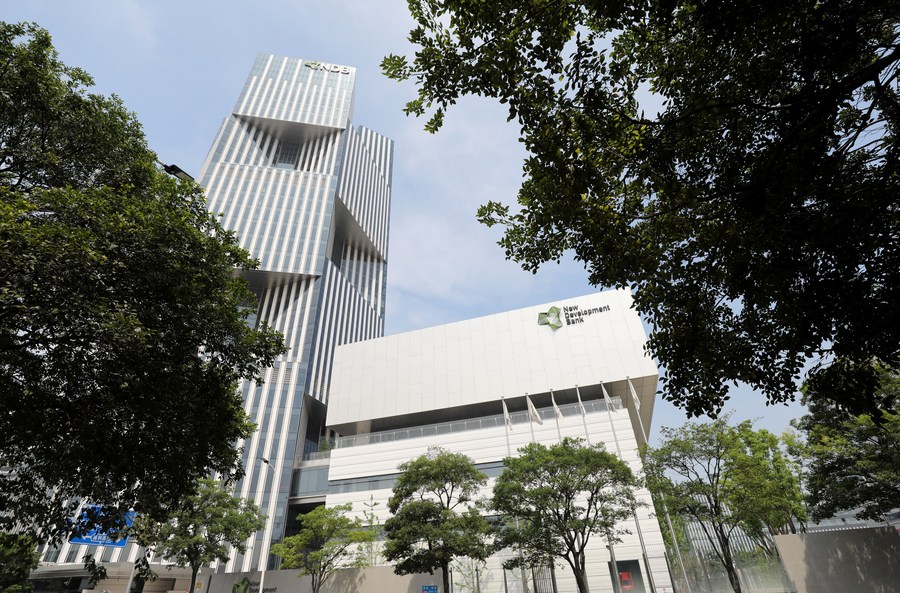
Aerial photo taken on June 17, 2022 shows the headquarter building of the New Development Bank (NDB) in east China's Shanghai. (Xinhua/Fang Zhe)
SHANGHAI, May 31 (Xinhua) -- The New Development Bank (NDB) will expand its outreach and fund more of its projects in local currencies to support the development of emerging economies, Dilma Rousseff, the bank's president, said on Tuesday.
Rousseff made the comments while addressing the NDB's 8th annual meeting, where she listed the priorities for the next few years, saying that the bank needs to expand its outreach, strengthening its role as a platform for cooperation.
The bank will increase its participation in co-financing operations with other multilateral financial institutions, national development banks, and with the private sector, Rousseff said.
The NDB will raise funds in diverse world markets, and in different currencies, she said. "At the same time, we will seek to fund a greater share of our projects in local currencies, with the dual objective of strengthening the member countries' domestic markets and protecting our borrowers from the risks of currency fluctuations."
The bank is very excited about having adopted new members and there will be an acceleration in the expansion of membership, Leslie Maasdorp, vice president and chief financial officer of the NDB, told Xinhua in an interview. "So you can expect to see more countries join from various geography across the world," he said.
In 2021, the NDB initiated an expansion of membership, admitting Bangladesh, Egypt, the United Arab Emirates and Uruguay as new member countries.
"Going forward, we will do more fundraising in the currencies of our members," Maasdorp said. Currently, local currency financing represents approximately 22 percent of the bank's portfolio, largely driven by Renminbi-denominated loans. The bank aims to raise the proportion to 30 percent in the 2022-2026 period.
Headquartered in Shanghai, the NDB was established by the BRICS nations, namely Brazil, Russia, India, China and South Africa. The bank formally opened in July 2015.
As a complement to existing multilateral and regional financial institutions, the bank was designed to mobilize resources for infrastructure development and sustainable development projects in BRICS countries, as well as other emerging and developing economies, to promote global growth and development. ■

